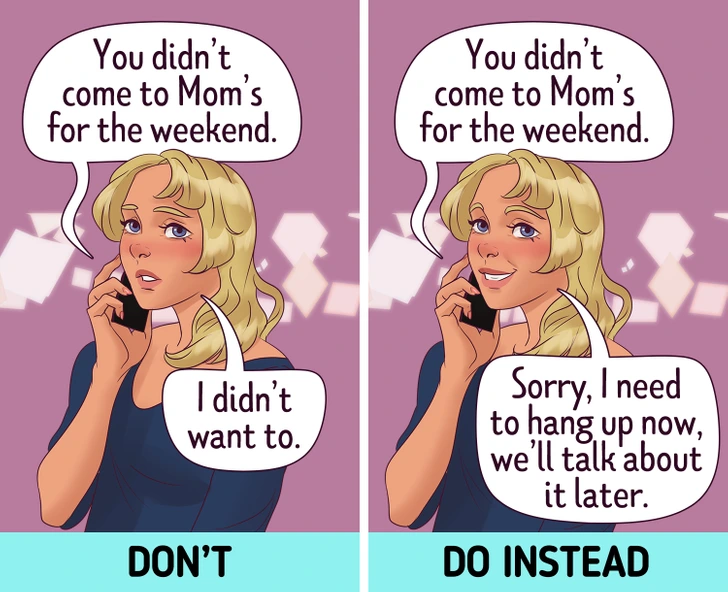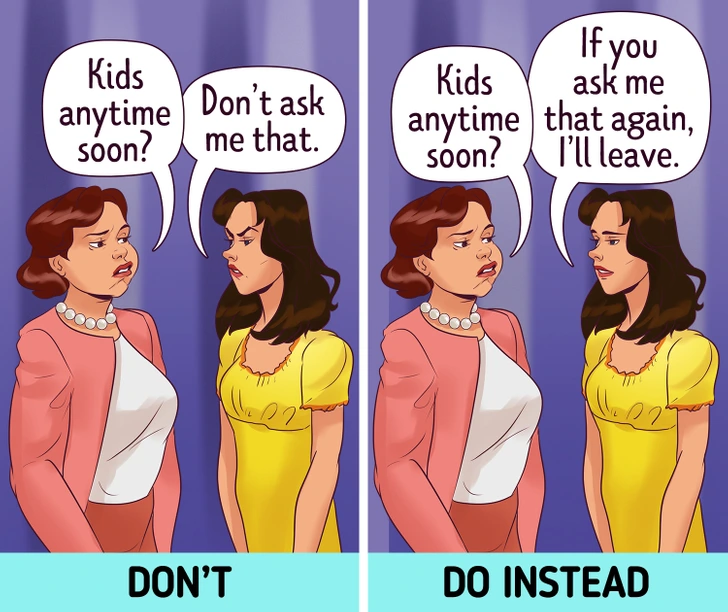There are 7 basic personality traits of difficult people. They include grandiosity, aggressiveness, callousness, suspiciousness, manipulation, risk-taking, and domineering. And while there’s nothing we can do to make these people more easygoing, we can help ourselves by being prepared for the next time we face an argument with this kind of person.
We at Pjinews dug up some tips that we hope will be useful to you when the time comes to inevitably confront a person with a challenging personality.
1. Talk about the issue while walking

If you need to talk or resolve an issue with a difficult person, do it while walking. That way both of you will accumulate less negative energy and avoid face-to-face interactions. The more distractions the environment provides, the fewer the chances are for the conversation to escalate into a fight.
For example, if your colleague invites you to a coffee shop, say that you had a cup of coffee already and propose going for a walk instead.
2. Try the sandwich approach

Start the conversation with your partner, colleague, or friend, with a positive comment. Make sure the person understands that you value their effort and afterward proceed with the crucial part of the conversation. End the conversation with words of gratitude, thanking them for taking the time to listen to you.
3. Be assertive

Change how you approach delicate situations. Instead of using “you” allegations, try to use “I” statements. For example, if your girlfriend asks you how a skirt looks on her before you go out, don’t tell her that she doesn’t look good in it, as this may lead to an argument.
Instead, say that she looks good but that you think the blue one will look better on her. She won’t be offended and will respect your opinion.
4. Set your feelings aside and talk about facts, not emotions

Difficult people are rarely open-minded when it comes to seeing things from multiple perspectives, so expecting them to put themselves in your shoes is unrealistic. Instead of wasting your time and energy trying to get them to understand how you feel, you’d be better off stating facts and explaining the situation from an objective point of view.
5. Avoid certain topics

If, in the past, you’ve had an argument about a certain topic and it ended badly, simply avoid these trigger topics and talk about something else. For example, if you don’t have a pleasant experience with your brother when it comes to discussing holiday celebrations, don’t talk to him directly. Instead, make all the arrangements happen through a mediator.
6. Set boundaries and stick to them

Establishing certain limits with someone can be challenging at first, especially if you are really close to this person. But deciding which behavior you are ready to put up with might be the key to a healthy relationship.
For example, if your mom asks you dozens of times when you’re planning on having a baby, you can say, “If you ask me again when I’m planning to have a baby, I will leave.” Remember to always stick to the boundaries you set, otherwise, the person will continue to take advantage of you.
7. Put all the attention on them

Difficult people are likely to make you uncomfortable. But if you react defensively, you’ll give the person more power to “bully” you. Instead, channel the attention back to them by asking questions.
So, at the moment you sense that the person is preparing to shower you with unpleasant comments, change the subject immediately. You can effectively do that by asking them something that will put the spotlight on them, something that they can brag about for a while.
8. Focus on positive things rather than negative ones

Don’t make negative comments and stay friendly. You don’t know what the person is going through, and maybe their behavior is justified. For example, if your friend is late, don’t approach them with a negative comment or accusing them of being late. Instead, say that you are happy to see him.
This way your friend may even apologize to you and explain their reason for being late, and both of you will start the night with a positive attitude.
Have you ever had an experience with a difficult person? If you have, please share your tips with us on how you dealt with them in those situations.





